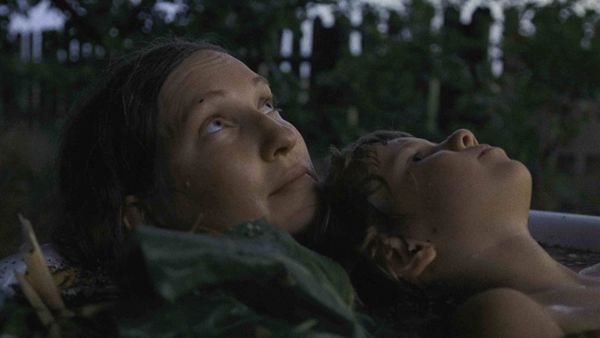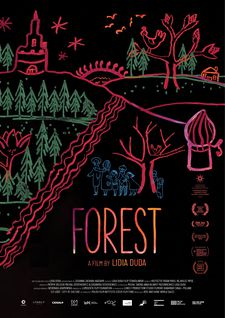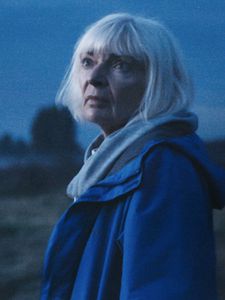 |
| Lidia Duda on the family in Forest: 'They believed, in the same way as the crew members, that it's super-important to show what was happening' |
Could you tell us a bit about the origins of the film, working with the family and gaining their trust given that you knew this would be a fairly long-term project.
Lidia Duda: The problem of migration is a global thing. The moment the humanitarian crisis started on the border between Poland and Belarus, I wanted to make a movie which would join the discussion of the immigration process. I didn't want to portray the very precise political situation within Polish borders but I wanted to show how the role of the family is being changed when politics reaches a family’s own home. The migrants do not knock on the premiers or presidents doors, they knock on our doors, on the doors of people living on migration routes. The effect of the huge political changes on our lives leads us to make moral choices about whether we join the wave of helping. If we react, or if we should pretend that the world is still beautiful.
It was very hard to find protagonists, our government said at that time that a good person living in Poland is not a person who helps, so it wasn't really appreciated to go and help people in the forest. They didn't really want to help out loud, they didn't want to be visible, so this was the only family which allowed me to shoot. I really wanted to find somebody with kids because I wanted to show they are as important as adults.
Were you ever concerned that the pressure would become too much and that the family would leave the project?
Your film captures the natural beauty of the forest, but also how dangerous it can become for those people trying to get across it, so the film almost feels like a thriller in places. How did you strike the balance between those opposing feelings?
LD: I really wanted to stay as close to the realism as possible so I didn't direct any scenes. I was following images I have seen in the place. So the life of the family was the connection of two ingredients - day and night. During the day they work and during the night they seek to help people. In the night, they go without light because they’re hiding from the border control. So, they seek to help people, they whisper, they sometimes use the red light because this is less visible. So they behave exactly like a partisans during the war - that’s what I was portraying.
How has the film been received in Poland, because I know Agnieska Holland faced a huge backlash over Green Border?
LD: The production process was not easy to finance the movie or to shoot it. But after we finished the film it collected a very good reaction in Poland and abroad. I think it’s because the perspective we chose of a father, mother and kids cut out the whole political background. We provoked people to think of human beings and the humanitarian aspect of it, even though we had some people from the opposition side at some screenings. By watching our family in the movie, it seems like they started to understand why some really want to go and help. By being there and observing the family it somehow changed their mind on the matter.
I believe that the film gives some sort of hope as it shows the power of the family. They could survive at the very hard moment because they had been supporting each other, full of empathy, whether it was someone close or somebody unknown.They just have this empathy for others and this is something which keeps you connected. We cannot change the big politics from one day to another, but we can really react within our circles, with our neighbors in the big cities, in the small towns in the villages. We can just be sensitive and we cannot close our eyes to people in need.
How do you feel about the situation in Poland today?
 |
| Forest poster |
When you're a documentarian knowing where to start and stop a film can be difficult. How was it with this film, especially as the situation is ongoing?
LD: Now, we're providing the impact campaign with the distribution of the movie, under the name, “help does not have borders”. We want to show the movie to the widest audience possible, but we also want to influence some changes in the law, starting from European law. We continue to fight alongside our protagonists, for the case, and to share their voices.
Forest screens at DOC NYC on November 14 and 15. It will be available online in the US from November 15 to December 1. More details from the DOC NYC site






















